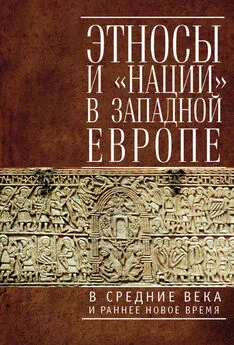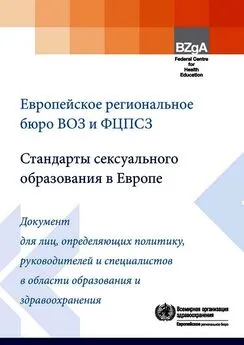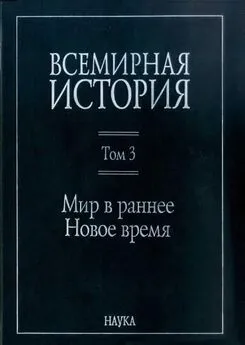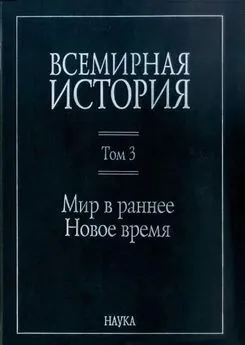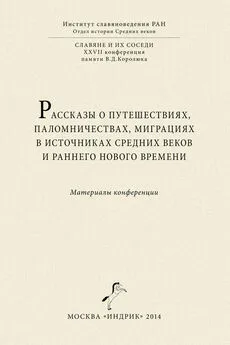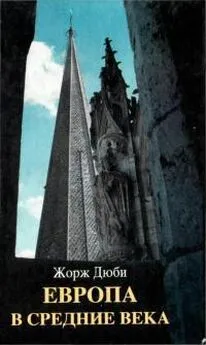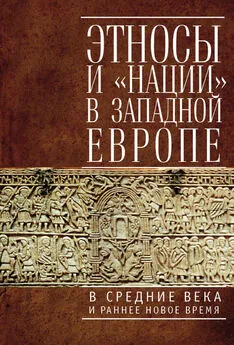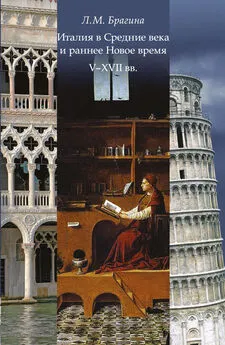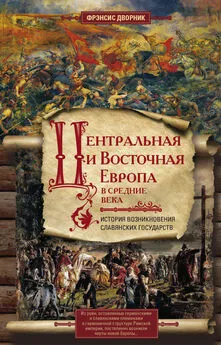Коллектив авторов - Этносы и «нации» в Западной Европе в Средние века и раннее Новое время
- Название:Этносы и «нации» в Западной Европе в Средние века и раннее Новое время
- Автор:
- Жанр:
- Издательство:Литагент «Алетейя»316cf838-677c-11e5-a1d6-0025905a069a
- Год:2015
- Город:Санкт-Петербург
- ISBN:978-5-9905927-4-2
- Рейтинг:
- Избранное:Добавить в избранное
-
Отзывы:
-
Ваша оценка:
Коллектив авторов - Этносы и «нации» в Западной Европе в Средние века и раннее Новое время краткое содержание
Настоящая монография стала итогом работы одноименной общероссийской конференции медиевистов, состоявшейся на историческом факультете МГУ 15–16 февраля 2012 г. На обширном историческом материале исследуются этнические и протонациональные дискурсы, а также обусловленные ими практики в Европе в Средние века и раннее Новое время. Особое место уделено факторам, определявшим специфику этнополитических процессов в композитарных и сложных по этническому составу государствах.
Для историков, политологов, социологов, а также интересующихся этнической историей европейских народов в Средние века и раннее Новое время.
Этносы и «нации» в Западной Европе в Средние века и раннее Новое время - читать онлайн бесплатно ознакомительный отрывок
Интервал:
Закладка:
II.VI. CORPORATE IDENTITY, NATIONAL IDENTITY: ENGLISH LEGAL CORPORATIONS AND POLEMICS ON COMPOSITE MONARCHY IN THE EARLY STUART ENGLAND
The idea of legal foundations of national identity have always been a key point for the English society. Though generally accepted, during the late Tudor and early Stuart epoch this idea was specified in several ways due to heterogeneity of English law. Civil law and common law courts, equity and prerogative jurisdiction, canon law and statutory law constituted a complicate system with no totally dominative element. Such a system reflected the very character of the English composite monarchy. Nevertheless, each branch of the English juridical system and socio-professional corporations formed by common law judges and civilians suggested its own way of development and structuring the monarchy comprising kingdoms of England and Scotland, dominion of Ireland, principality ofWales and lesser composites. Each legal corporation, experiencing the period of active social and intellectual development, pretended to be an arbiter for the politics of the crown. Both civilians and common lawyers believed their own legal system the best means of further integration within the Stuart monarchy. While common law discourse proposed definitely anglocentric scheme, civilians of the Doctors’ commons tended to advance «British», or «imperial» constructs with quite equal distribution of ethnical, political and cultural influence.
III. «SELVES» AND «OTHERS»: CONFLICTS AND COOPERATION
III.I «THE FOREIGNERS» IN THE ADMINISTRATIVE INSTITUTIONS OF THE GERMAN TERRITORIAL STATES OF THE XVITH CENTURY
The notion of the national identity has been used in different way in Germany of the XVI thcentury in respect of all-German or local level. Whereas one finds the notion of the German nation in the political rhetoric of the German princes, in the anti-Roman polemic of the religious reformers and the literary works of the Humanists, one observes on local level a self-identification referred to a concrete country: Bavarian, Saxon, Württenbergian.
The paper deals with the position of the foreigner employees in the central administration ofthe German territorial states in the 16 thcentury. One applied the terms "Ausländer», «Fremder», «auswärtiger Diener» to these employees, and the immigrants from other German countries were mostly meant by such terms.
The deficiency for the specialists, in particular for educated jurists and managers, caused a demand for foreigner employees. This deficiency was particularly acute in the territorial states where the universities had arisen at later date, as it was, for instance, in Brandenburg. The Reformation has contributed too for the multiplying of the foreigner employees, because the criteria of the religious confession became more important as the privilege to belong to local elite.
Enrollment of the foreigners ran against the opposition of the estates, especially of the nobility, who made a stand for the traditional privilege of the natives to fill important posts in the administration. The protests of the nobility had also a social component, for the most part of the foreigner jurists came from the bourgeoisie.
The princes assisted the skilled managers in their establishment in the country by granting them land and by favoring their marriage with the representatives of the local nobility and urban patriciate.
In addition to the self-identification regarding the country, the author examines the self-identification of the professional and religious groups which united people above the frontiers of the territorial states, for instance, licensed jurists, the Catholics or vice versa the Protestants.
III.II. CROATIAN NOBILITY IN STATE AND CHURCH SERVICE IN THE KINGDOM OF HUNGARY AT THE TURN OF THE XVITH CENTURY (IVAN KITONIC: A PORTRAIT IN THE TIME CONTEXT)
The article studies the presence and use of ethnical component in Habsburg «personnel policy» in the Kingdom of Hungary at the turn of the XVIth century. By the example of Ivan Kitonic and several his colleagues – advocates of royal possessions in Hungarian Exchequer (causarum regalium director et corona fiscalis) and Croats by birth – the author puts forward the following important problems: 1) the role of Croatian ethnos in the social and political structure of the double composite monarchy (as a part of the Kingdom of Hungary and Austrian Habsburg monarchy); 2) the principles of forming the bureaucratic apparatus in the Austrian Habsburgs’ territories in the early modern period and the opportunities for the estates of the incorporated kingdoms in the above process; 3) the intensification of the contradictions between the Austrian Habsburgs and the estates that influenced «the personnel policy» of the central power in the Kingdom of Hungary. The author comes to the conclusion that the Croatian nobility, having settled at the territory of the Kingdom of Hungary as a result of the XVIth century migration, integrated its social and political institutions, actively participated in the social life and in both local and central administration. Being closely associated with the Catholic Church and its institutions and as a rule loyal to the Habsburgs, the Croatian nobility and especially those its members that had been educated in law were largely engaged by the authorities for the state service. At the end of the XVIth and at the beginning of the XVIIth century the relations between the Habs-burgs and the Hungarian estates worsened and the Habsburgs started to put various pressures including the persecution of the political elite and confiscation of its possessions. In those circumstances Croatian nobles serving in the central financial institutions turned out indispensable to stand guard over the dynastic interests.
III.III. «FOREIGNERS» IN THE HISTORY OF FRENCH CRAFTS AND MANUFACTURES
Almost all crafts and many oftrade guilds took not an active interest in «foreigners», as showed theirs statutes where the mentions about «foreigners» were very infrequent. The real reason of such an absence was not concerned with the distance to the frontiers of Kingdom, and not with the appearance of foreigners in the city, and theirs claims to practice one or another profession. The corporations considered the «strangers» (forains ) not the «foreigners» ( estrangers ) the main problem. The «strangers» were all those who studied the craft not in this city and not from the craft’s master. The French (from other cities and provinces) also were the «strangers», though the place of birthday of apprentices or the domicile were not so important.
On the contrary the French manufactures for silk or cloth in Modern period were open for foreigners – as masters and as journeymen. Moreover, the manufactures were granted the great privilege: if a foreigner became a master of manufacture, he naturalized without any documents and payments. The French manufactures were very interested in the professional secrets and encouraged the opening of new types of fabrics by foreigners – the statutes of manufactures canceled the masterpieces and other tests for those who opened the new and interesting for French specialists secret.
III.IV ETHNIC AND CONFESSIONAL FACTORS IN ADMINISTRATIVE SYSTEM OF MEDIEVAL SPAIN
This article describes historical experience of medieval administrative system in their Islam and Europe traditions. The comparison is based on a vast and various materials about Iberian political forms: Caliphate of Cordova and Crown of Aragon, Kingdom of Granada and Princedom of Catalunia, taifas and earldoms.
In general, the model of management of other-ethnic population adopted in medieval Christian kingdoms was similar to the system that was developed in Islamic political centers. Both managing models (European and Muslim) in Medieval Spain give a similar picture.
The political power ofMedieval Spain was absolutely indifferent to the ethnic characteristics. The ethnic origin of a man never influenced his life, chance, status or career. On the contrary, the confessional factor was the most important marker for social identification. Participation in administrative structures was limited for Muslims in Christian territories and for Christians in Islamic ones.
Confessional factor was the first and the main one for medieval authorities. On the contrary, ethnic component was pushed back.
We have here certain political culture paradigm formed and established over large areas of the Mediterranean. This paradigm was common and usual here for all political forms which constructed their administration without surviving Roman institutions and customs.
There were only Northern Spain States in Latin Europe to face the problem of massive other-population. Their historical choice is very important: it shows the unity of approaches in this question inside the Mediterranean civilization in general.
Сведения об авторах
Асейнов Ренат Меулетович, кандидат исторических наук, заведующий редакцией страноведения ЦНЦ «Православная энциклопедия». (глава II.II.)
Варьяш Ирина Игоревна, кандидат исторических наук, доцент кафедры истории средних веков и раннего Нового времени Московского государственного университета имени М. В. Ломоносова (глава III.IV.)
Громова Анна Викторовна, старший преподаватель кафедры иранской филологии Института стран Азии и Африки Московского государственного университета имени М.В. Ломоносова (глава I.IV.)
Гусарова Татьяна Павловна, кандидат исторических наук, доцент кафедры истории средних веков и раннего Нового времени Московского государственного университета имени М. В. Ломоносова (глава III.II.)
Дмитриева Ольга Владимировна, доктор исторических наук, заместитель генерального директора по развитию просветительской деятельности и популяризации Музеев Московского Кремля (глава II.V.)
Кириллова Екатерина Николаевна, доктор исторических наук, ведущий научный сотрудник Института всеобщей истории РАН (глава III.III.)
Ковалев Виктор Александрович, кандидат исторических наук, доцент Санкт-Петербургского института внешнеэкономических связей, экономики и права (глава II.VII.)
Паламарчук Анастасия Андреевна , кандидат исторических наук, старший прподаватель кафедры истории средних веков Санкт-Петербургского государственного университета (глава II.VI.)
Таценко Тамара Николаевна, кандидат исторических наук, старший научный сотрудник Отдела всеобщей истории Санкт-Петербургского Института истории РАН (глава III.I.)
Читать дальшеИнтервал:
Закладка:
